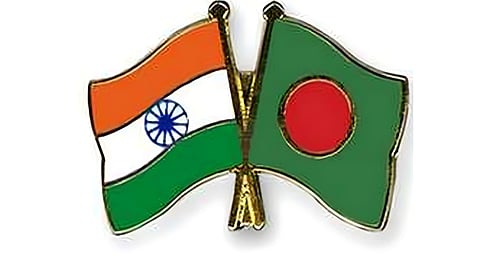

NEW DELHI: After the suspension of the Indus Waters Treaty in the wake of the Pahalgam terror attack, the government has now decided to renegotiate the Ganga River Water Treaty with Bangladesh, which is set to expire next year.
India has communicated to its counterpart that it requires more water to meet its developmental needs. The new treaty will likely to be shorter, lasting 10 to 15 years. The shorter duration will foster flexibility and adaptability for both nations moving forward.
The Ganga Water Treaty was signed on December 12, 1996 on sharing of water, particularly around the Farakka Barrage during the lean season.
“Before Pahalgam, we were inclined to extend the treaty for another 30 years, but the situation changed drastically afterward,” stated a senior officer at the Ministry of External Affairs who participated in a meeting with the Bangladeshi counterpart earlier in May.
“It was a routine meeting, held twice a year, but it also provided an opportunity to express our concerns regarding the increasing need for water to support domestic development, which will influence the terms of the new treaty,” the officer explained.
According to internal documents for discussions, seen by this newspaper, the Farakka Barrage was built to continuously divert 40,000 cusecs of water into a feeder canal for the Kolkata Port Trust (now known as Syama Prasad Mookerjee Port, Kolkata).
“The 1996 treaty has disrupted this arrangement, leading to issues such as slope failure, bed erosion, and heavy siltation in the KPT, which has reduced its navigational efficiency. Additionally, the NTPC plant there is facing water crisis,” the officer added.
The current arrangement provides 35,000 cusecs of water alternately for 10 days each to both countries during the lean season, which lasts from March 11 to May 11. India is seeking 30,000 to 35,000 cusecs more during the same period to meet its emerging requirements.
The Centre has the support of the West Bengal government, which is the primary beneficiary of the additional water. During internal discussions, Bihar too emphasised the need for extra Ganga water to meet its drinking and irrigation needs. An internal meeting, which included a senior officer from West Bengal, has confirmed this requirement.
The emerging sense of distrust following the coup in Bangladesh last year, has put Indian diplomacy in a challenging position. In early May, following the Pahalgam attack, Indian delegates visited Bangladesh and communicated to their counterparts that the treaty needs to be re-discussed due to India’s increasing water needs.
In the past, the West Bengal government has expressed concerns that the treaty compromised India’s requirements. “For any treaty made in good faith, it is the duty of the lower riparian state to respect the upper riparian state to maintain that good faith. How long can we continue to show generosity to support our neighbour when they don’t value our contribution?” remarked an official.